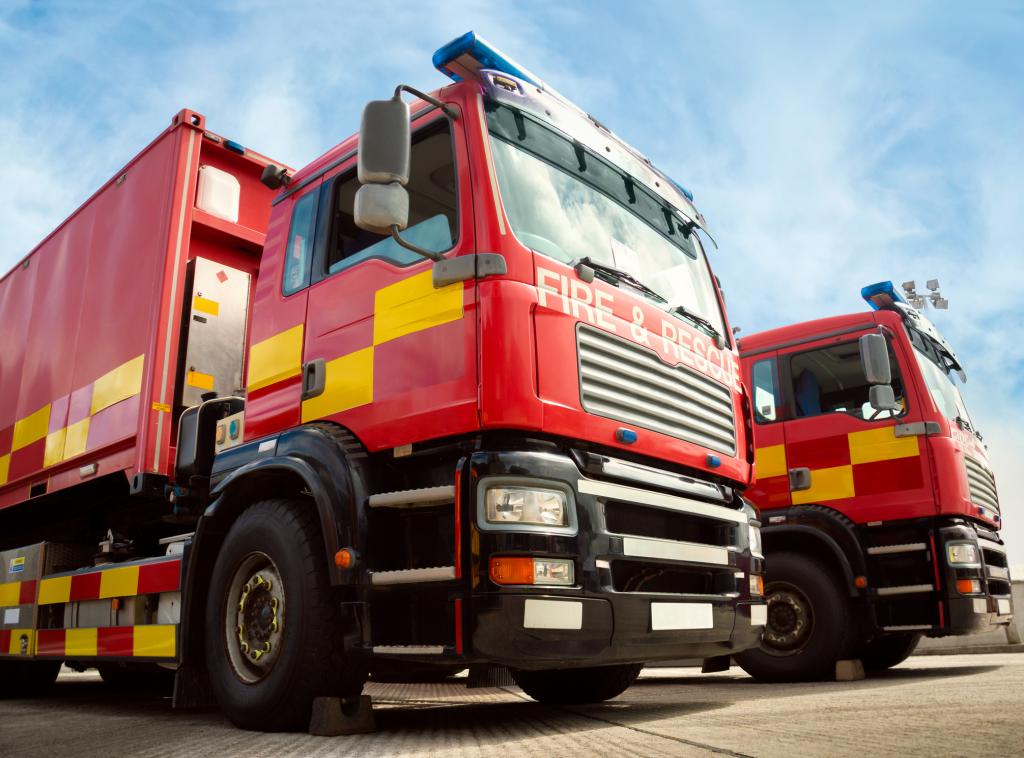
I was deeply saddened to read about the fire that took hold and severely devasted St Mark’s Church St Johns Wood London last week. We tend to assume that these precious religious and historical landmarks (often the centres of our communities) will be a part of our landscape forever and to see the flames rising out of the roof makes for a distressing scene.
Losing your church in such a way is rare
It made me want to make sure that PCCs are doing everything that they can to prevent these types of events from happening. Whilst it is thankfully a rare event to lose a church in this way, it does draw to our attention to the importance of ensuring that if the worst does happen you are prepared for it and have put plans in place to cope.
We do not yet know what the cause of this particular fire was and so in this article I explore the general ways that PCCs can protect themselves.
How can I protect the PCC in advance?
- It goes without saying that you must have adequate insurance in place so that you are covered if the worst happens. This is insurance not only for the building and events like fires but for public liability too, as the structural integrity of the building could be compromised and if anything was to fall and injure a member of the public then you could be liable.
- Make sure that you know where your insurance policy is kept and have those details in a digital format or if in a paper format make sure there are copies at a place other than the Church. Make sure it is up to date!
- Ensure your Church building is structurally sound and is secure from illegal entry. A sound building is likely to survive a fire and the consequential water damage better than an unsound building.
- Think about safety features you could install in your Church that would assist in the event of a fire, such as fire alarms, a sprinkler system and lightning conductors. This may be more difficult for our rural Churches which often don’t have a water supply, but there may be other systems you could install. Please remember however that any system would require Faculty consent.
- Make sure you have the electrics in the building regularly checked by a suitably qualified electrician and any boilers regularly serviced. Keep any documentation regarding the servicing somewhere safe and easily accessible; preferably not within the church.
- Ensure you have procedures in place such as a checklist/records book for any third parties who use the Church to follow. You need to ensure that they do not leave on any electrical heating or lighting systems which might cause a fire in your unoccupied building.
- If as a consequence of the unfortunate event you are not able to use the Church at all then you need to think about storage of the contents of the building such as candlesticks and silver plate. These items would normally need a Faculty to be removed from the church but in an emergency situation the Chancellor has the power to make an interim faculty giving permission for removal to safe storage. It would be prudent to give prior consideration to where safe storage might be found in your parish.
- Church Records such as burial records, baptism records and the marriage book may be kept in the Church, and they should be kept in a safe or cabinet that is fire and water resistant.
- Think about a contingency plan for where you will hold services, marriages, christenings, funerals etc if you cannot use your church. If you want to use another building this will need to be temporarily licensed and an application would need to be made to your Registrar.
- Do you have contact details to hand for all the people whose weddings can no longer take place as you will need to notify them about the damage that has occurred to the building and the impact it may have on their big day Keep this information in a place that is separate to the church building.
- Is your electronic data being backed up to an external source so that you can access it even if all of your computer equipment has been lost in a fire?
- Consider having in place a Marriage Direction for your Benefice so that Banns can be read across any of the Churches in the Benefice as this would assist if one Church cannot be used. You can contact your Registrar about this now.
What will happen after a fire or other loss of the building?
The costs of re-building or repairing the church are likely to be extensive and it is going to be a difficult time for the Church community and PCC in dealing with the ramifications of this as well as coping with the decision-making process.
You will undoubtedly lose revenue because of the loss of your normal events and revenue sources. If you rely upon visitors and their charitable giving, then this could have a serious impact on the viability of your church.
Thought will need to be given to the possibility of whether restoration is possible or whether a new building should be erected in its place. Faculty permission will be required for any works, including demolition and this will slow up progress. Any rebuild project will involve consultations with the various historic societies and conservation bodies including the local authority.
The workload and upheaval of a catastrophic event would be enormous. Do you have the person power and stamina to deal with this? It would be far better to take prudent steps now in order to do your best to minimise the risks you face and if you have put a contingency plan in place in advance then you will be better able to cope with the consequences of such an event.
Please do not hesitate to get in touch with our Church Law team should you wish to take any of these measures and require our assistance in doing so.
